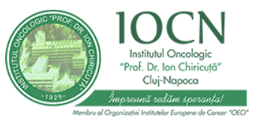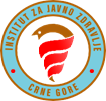Why EU-TOPIA-EAST? 
Colorectal, breast and cervical cancer cause 155,000 deaths each year in middle income countries in Eastern Europe, while there is good evidence that a large proportion could be prevented by organized screening. Although many countries in Eastern Europe have implemented some form of cancer screening, this screening is often non-organized, leading to lack of data and quality assurance systems. Also, coverage is commonly low and minority groups are not reached.
In a previous HORIZON2020 project ‘EU-TOPIA’, we developed road maps to improve cancer screening programmes in Europe. In the current project, EU-TOPIA-EAST, these roadmaps will be refined and translated into action plans for three Middle-Income Countries (MICs): Georgia (breast), Romania (cervix) and Montenegro (colorectal). These action plans will take the local health and social system into account by performing detailed barrier and stakeholder analyses, leading to feasible changes to current screening programs. Next, we will implement these action plans: e.g. in Georgia, we will increase coverage of the programme by establishing a new screening unit; in Romania, we will develop new IT infrastructure to allow invitation-based cervical cancer screening; and finally in Montenegro we will establish a new colonoscopy center to increase programme capacity decrease travel time for participants.
The implemented programs will be monitored and evaluated using key indicators and sophisticated decision models to predict the long-term and country-wide benefits, harms and cost-effectiveness. During workshops and roundtable discussions for policymakers and screening program coordinators from all countries in Eastern Europe and the Mediterranean, capacity will be build to upscale the implementation of these intervention(s) in Equitable, Accessible, and SusTainable (EU-TOPIA-EAST) ways. In this way, the project will improve the prevention and early diagnosis of cancer in real-life settings in Eastern European and Mediterranean countries.
EU-TOPIA-EAST will lead to
- reduced inequity in cancer burden
- fewer cancer deaths
- less over-diagnosed cases
- improved quality of life
- more cost-effective cancer screening programmes











